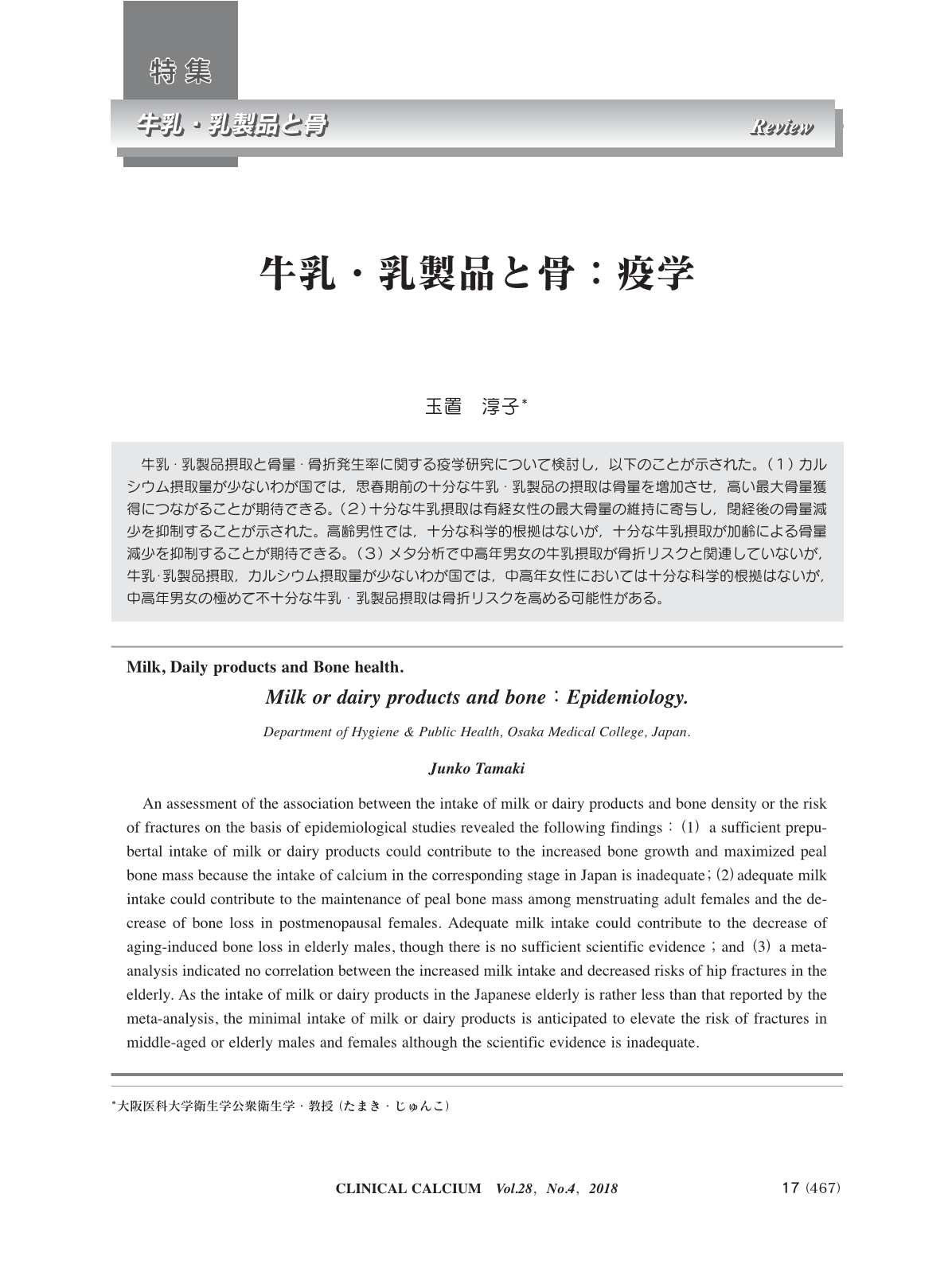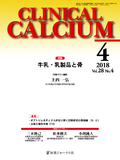Japanese
English
- 有料閲覧
- Abstract 文献概要
- 1ページ目 Look Inside
- 参考文献 Reference
牛乳・乳製品摂取と骨量・骨折発生率に関する疫学研究について検討し,以下のことが示された。(1)カルシウム摂取量が少ないわが国では,思春期前の十分な牛乳・乳製品の摂取は骨量を増加させ,高い最大骨量獲得につながることが期待できる。(2)十分な牛乳摂取は有経女性の最大骨量の維持に寄与し,閉経後の骨量減少を抑制することが示された。高齢男性では,十分な科学的根拠はないが,十分な牛乳摂取が加齢による骨量減少を抑制することが期待できる。(3)メタ分析で中高年男女の牛乳摂取が骨折リスクと関連していないが,牛乳・乳製品摂取,カルシウム摂取量が少ないわが国では,中高年女性においては十分な科学的根拠はないが,中高年男女の極めて不十分な牛乳・乳製品摂取は骨折リスクを高める可能性がある。
An assessment of the association between the intake of milk or dairy products and bone density or the risk of fractures on the basis of epidemiological studies revealed the following findings:(1)a sufficient prepubertal intake of milk or dairy products could contribute to the increased bone growth and maximized peal bone mass because the intake of calcium in the corresponding stage in Japan is inadequate;(2)adequate milk intake could contribute to the maintenance of peal bone mass among menstruating adult females and the decrease of bone loss in postmenopausal females. Adequate milk intake could contribute to the decrease of aging-induced bone loss in elderly males, though there is no sufficient scientific evidence;and(3)a meta-analysis indicated no correlation between the increased milk intake and decreased risks of hip fractures in the elderly. As the intake of milk or dairy products in the Japanese elderly is rather less than that reported by the meta-analysis, the minimal intake of milk or dairy products is anticipated to elevate the risk of fractures in middle-aged or elderly males and females although the scientific evidence is inadequate.



